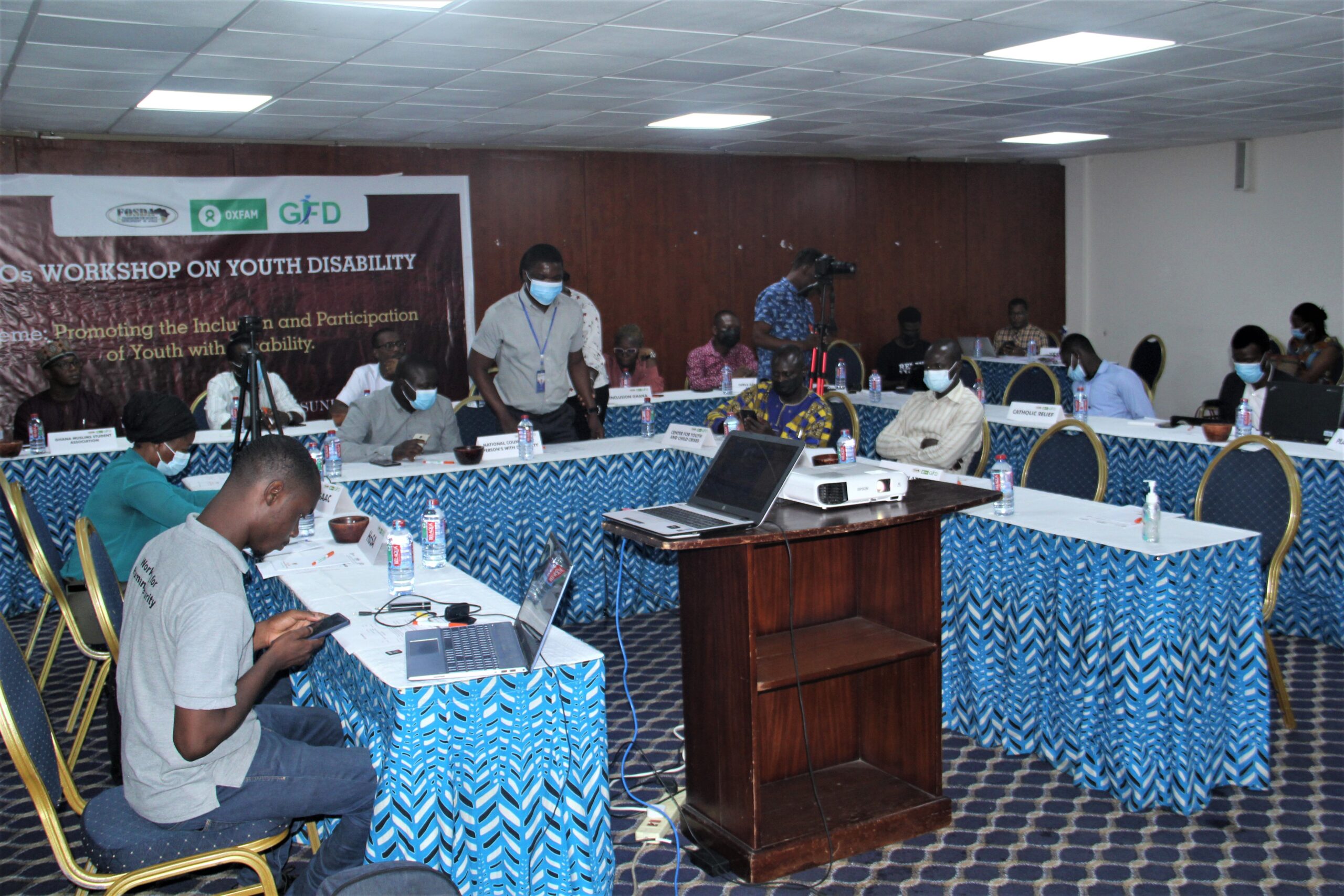By DisabilityNewsGH
Civil Society Organisations (CSOs) in the country have been urged to make their policies and programmes inclusive of the concerns of youths with disabilities (YWDs), and also make conscious efforts to involve them in their activities.
Foundation for Security and Development in Africa (FOSDA) believes that their involvement will, among other things, provide them with an opportunity to contribute to the development of the country. And that ultimately will be helping to achieve an inclusive society where no one is left behind.
It has been observed that most CSOs in the country, including youth networks and organisations working for the youth, do not have youths with disabilities represented or participating in their activities.
Such neglect is further marginalising the YWDs who already belong to a marginalised group of persons with disabilities.
FOSDA discovered this marginalised group through its work with the youths in the country, and has since last year, 2021, been mobilizing youths with disabilities and advocating for their representation and participation in decision-making processes.
It has so far made some impacts in the Volta, Ashanti, Greater Accra and Upper West regions.
While sensitizing CSOs on the need to reach out to youths with disabilities, the foundation also encourages YWDs to make themselves available or join such networks and organisations.
On Tuesday, March 29, 2022, FOSDA held one of such sensitization workshops in Accra.
The event brought together various CSOs in the region, who were briefed on the plights and concerns of YWDs, and the need to ensure that their policies and programmes address such concerns.
According to the Executive Director of FOSDA, Madam Theodora Anti, the foundation has discovered inaccessible educational infrastructure as a major hindrance to education of youths with disabilities in the country.
She notes that the situation is denying them their right to education; and the few who are able to defy the odds and educate themselves or acquire some skills, hardly get employment opportunities.
They also have challenges accessing health care, especially the deaf; who have difficulty communicating with health workers due to sign language illiteracy on the part of the workers. And there are no interpreters to assist.
Difficulty in accessing information on reproductive health is another, among many other challenges.
Madam Theodora Anti tells DisabilityNewsGH.com that, FOSDA is seeking to draw attention to the challenges and how to address them.
SOURCE: DisabilityNewsGh

